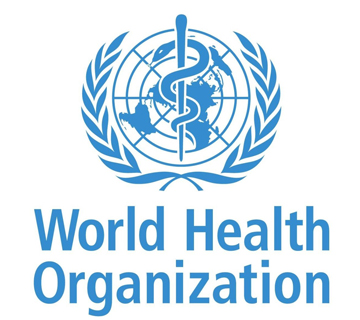|
|||||||||||||||||||||||||||||||||||||||||||||||||||||||||||||||||||||||||||||||||||||||||||||||||||||||||||||||||||||||||||||||||||||||||||||||||||||||||||||||||||||||||||||||||||||||||||||||||||||||||||||||||||||||||||||||||||||||||||||||||||||||||||||||||||||||||||||||||||||||||||||||
|
Diet: One Important Solution to Sexual Abuse
|
|
Luigi Fontana, MD: Med Students Should be Taught Nutrition in Medical School
|
Update on Cows Milk Consumption and How it Impacts Human Health by Causing Disease
|
Ancel Keys and Cherry Picking: Can We Please Get This One Thing Right?
|
Lies and Damned Lies: Damned Lies Harm the Public and Planet Earth
|
Help Stop the Lying by the Media On Health and Nutrition
|
The annals of internal medince March 18, 2014, states that it is safe to eat saturated fat, eggs and meat. The Media does the rest to tell the world. This is the truth, or is it? Read on.
|
|||||||||||||||||||||||||||||||||||||||||||||||||||||||||||||||||||||||||||||||||||||||||||||||||||||||||||||||||||||||||||||||||||||||||||||||||||||||||||||||||||||||||||||||||||||||||||||||||||||||||||||||||||||||||||||||||||||||||||||||||||||||||||||||||||||||||||||||||||||||
|
Is it Safe to eat lard?
Ronald M. Krauss, MD—The Doctor Who Made
Lard-eating Fashionable
| Ronald M. Krauss, MD is a well-publicized author in both the lay press and medical journals. He is a UCSF Adjuvant Professor, Endocrinologist, and the Director of Atherosclerosis Research at Children's Hospital Oakland Research Institute. Dr. Krauss' work has provided one of the most important foundations for popular discussions about how eating meat, dairy, and eggs are not health hazards for people. Even though it may not have been a direct intention of Dr. Krauss, lard is back on the dinner table thanks in part to his publications.
Dr. Krauss has not acted alone in turning nutrition wisdom on its head. Robert Atkins, MD of the Atkins Diet fame, Gary Taubes (science-writer) and best-selling authors William Davis, MD (Wheat Belly), and David Perlmutter, MD (Grain Brain) have made valuable contributions to this latest trend. |MORE| |
A Preliminary Evaluation of Chowdhury Meta-Analysis
on the Association of Fatty Acids with Coronary Risk
| I'm an active reader/researcher on nutrition, finance, climate change, and politics. The NY Times piece on the Chowdhury paper made me at first angry, and then very concerned. From previous research into these areas plus my work experience as an Intel engineer, I know how data can be cherry-picked and distorted. Thus, I felt compelled to do an objective evaluation of the saturated-fat claim in the Chowdhury paper, because it is this aspect that the mainstream media has latched on to. Could the net effect become as bad as Atkins in the 1990's, Gary Taubes in the previous decade, and the Paleo-diet proponents are doing in this decade? Too soon to tell. Am I biased? Sure. I'm biased by all the research that I have read, and by my own experiences. But as a trained scientist and engineer, I know how to do an objective evaluation, and that is all that I can promise. In finance, they say "follow the money." In this case, I will follow the data to see where it takes me. |MORE|
|
Saturated Fat and Heart Disease Meta-Analyses: Were Scientists Wrong?
| In the April 2014 McDougall newsletter, I addressed two meta-analysis studies that are frequently cited as evidence against the hypothesis that dietary saturated fat increases the risk of heart disease, as was the case in a recent problematic article featured in Time magazine. I demonstrated that the cohort studies included in these meta-analyses, as well many other studies provide strong evidence that diets rich in saturated fat, including low carb diets increase the risk of death from heart disease. In this article, I address these meta-analyses in further detail, examining the association between saturated fat and incidence of heart disease (both fatal and non-fatal). In particular, I address how several serious errors and problems biased the findings of these meta-analyses against showing an adverse effect of saturated fat, casting significant doubt on the validity of the conclusions of these studies. I also examine the problem of reductionism, and why the focus should be directed to a fiber-rich plant based diet, naturally low in saturated fat for optimal heart health.
|
The Paleo Diet Is Uncivilized (And Unhealthy and Untrue)
| Low-carbohydrate (low-carb) diets are fueling the destruction of human health and our planet Earth. “Low-carbohydrate” means a diet high in animal foods and low in plant foods. Only plants synthesize carbohydrates (sugars). The body parts of animals, including red meat, poultry, seafood, and fish, and eggs, contain no carbohydrates. Animal secretions (like mammalian milk) contain sugars synthesized by plants (the cow eats the grass that made the sugar). The original Atkins Diet is the ultimate in low-carb eating. This diet works by starving the human body of carbohydrates in order to induce a state of illness (ketosis), which can result in weight loss. People become too sick to eat too much.
In an attempt to remedy the obvious harms to human health caused by very low-carb eating, apologists (including the Atkins Nutritionals) have added fruits and non-starchy vegetables to their programs. This effort is supposed to disguise, and compensate for, the unhealthy effects of consuming animal foods at every meal. |MORE| |
Extreme Nutrition: The Diet of Eskimos*
|
Dr. Esselstyn Demonstrates AGAIN: Plant-Based Is the Cure for Heart Disease
|
It was less than a week ago that Dr. Esselstyn published a new study. That study show how, in a group of nearly 200 individuals, the plant-based, no-oil, low-fat diet stopped heart disease 99.4% of the time. (You can scroll down to read about that.)
This article looks at three individuals who had very serious heart conditions, who decided to try Dr. Esselstyn's program. As you might expect, all three experienced dramatic improvements in multiple ways. This is an exciting paper that makes it crystal clear: any cardiologist who isn't telling her patients about Dr. Esselstyn's ground-breaking findings -- should not be practicing. Every patient has a right to know they can stop their heart disease in its tracks, and even reverse it, just by changing what they eat. Read Dr. Esselstyn's new study now: (PDF file - requires free Adobe reader) The nutritional reversal of cardiovascular disease fact or fiction! Three case reports by Dr. Cadwell Essseltyn jr. MDPublished in the journal of experimental & clinical cardiology http://www.dresselstyn.com/Esselstyn_Three-case-reports_Exp-Clin-Cardiol-July-2014.pdf |
|
Most Important Plant-Based Study of the Decade?
|
Diet Research, Stuck in the Stone Age
|
Why prehistoric? Because it is long known and well established that dietary fats run the gamut from good to bad to ugly. No good diet should willfully exclude the monounsaturated fats and omega-3s in nuts and seeds and avocados; I’m pretty sure everybody not stuck under a boulder knows that. | MORE|
|
Is October Breast Cancer "Awareness" or "Industry" Month?
|
PROBLEMS WITH EARLY CANCER SCREENING
Dr. Peter Gotzsche, M.D. does not recommend mammography or prostate cancer screening
 This is part one of a three-part interview.
|
Early Detection for Cancer Is a Risky Business
| Accepting an examination of your body parts in an effort to find cancer earlier means you are willing to risk your life today for the theoretical possibility that you will gain extra years in the distant future.
For example, I have known perfectly healthy people in their forties suffer a perforation of their bowel during a routine colonoscopy and die—all from an effort to prevent colon cancer in their sixties or seventies. While attempting to prevent one death from colon cancer with 1,000 examinations, two people may suffer from this potentially fatal complication (in addition to other complications, such as those from bleeding and anesthesia). Fortunately, similar cancer benefits can be had with a safer sigmoidoscopy examination, at almost no risk, or a test of the stool for blood or DNA at no risk of physical harm. Screening for cancer is "disease mongering" at its worst. By casting a large net with early detection schemes, people are roped into laboratory tests, imaging, doctors' office visits, biopsies, surgeries, radiation treatments, pharmaceuticals, chemotherapies, and hospitalizations. Disease mongering turns people into patients, and few will benefit. |
|||
Mammograms do little to catch
|
|
Dr. H. Gilbert Welch of Dartmouth Medical School was the keynote speaker at the February 2012 McDougall Advanced Study Weekend in Santa Rosa, CA. He, along with his co-author, Dr. Archie Bleyer of St. Charles Health System and Oregon Health & Science University, published an article in the New England Journal of Medicine on Thursday, November 22, 2012, showing how mammograms do little to catch deadly breast cancers before they spread, and at the same time, 1.3 million women in the past 30 years have been treated for cancers that never would have threatened their lives. (They were over-diagnosed.)
This is one more key piece of evidence explaining why women need to avoid looking for breast cancer with mammograms. The Cochrane Collaboration, the highest authority in medical research, made the definitive statement earlier this year by officially recommending that women should stop getting mammograms. They have published brochures in 13 languages to convey their scientific conclusions.
Watch Dr. Welch’s presentations from the McDougall Advanced Study Weekend free:
|
|
H. Gilbert Welch, MD (from the McDougall February 2012 ASW) Speaks Out on Amy Robach's Double MastectomyFollowing a Mammogram
|
ABC's Amy Robach discovered her breast cancer after an "on-air mammogram" on October 1st, 2013 for "Good Morning America's Pink Day." The news was announced to the world on November 11, 2013 on this national early morning TV show, and her doctors told her bluntly that this test saved her life. Her public efforts, she believes, will save many other women's lives by encouraging them to have their breasts examined. The scientific truth tells a far different story, one of great harm done, when celebrities go public about their diseases. The facts are:
|MORE|
|
Do Vegetarians Live Longer Than Health Conscious Omnivores?
| In the February, May and August 2013 McDougall newsletters, I presented readers with articles addressing the dangers of low-carb and Paleo diets. Please take this opportunity to read these articles.
Although the question as to whether a plant-based diet extends life expectancy is likely determined by the quality of foods used to replace animal foods, numerous proponents of low-carb and Paleo diets have claimed that diets that exclude flesh do not favor longevity, and are even likely to promote premature death. Whenever health benefits are observed in vegetarians, these proponents have often simply attributed this to other healthy aspects of a vegetarian lifestyle, unrelated to abstention from meat. In this article, I examine a number of these concerning claims, and review the literature addressing the life expectancy of vegetarians and health conscious omnivores. In addition, I address a number of important limitations of studies carried out on vegetarians, and in particular, how paradoxical findings can result as the consequence of participants adopting a vegetarian diet in response to deteriorating health. | MORE| |
Nutrition Journal Publishes Results of 1615 McDougall Patients
Study: Effects of 7 days on an ad libitum low-fat vegan diet: the McDougall Program cohort
|
Rice Diet Program was Developed at Duke University in the United States
Sample statisics for the Duke University Rice Diet four week lifestyle intervention program. Dr. Robert Rosati and his wife Kitty Rosati who ran this program have written a book called the rice diet solution.
Walter Kempner, MD - Founder of the Rice Diet
| Walter Kempner, medical doctor and research scientist, is the father of modern day diet therapy and creator of the Rice Diet. All who have followed in his footsteps, including Nathan Pritikin, Dean Ornish, Neal Barnard, Caldwell Esselstyn, and myself, owe homage to this man and his work.
Kempner's Rice Diet program began at Duke University in Durham, North Carolina in 1939. The treatment was a simple therapy of white rice, fruit, juice, and sugar, and was reserved for only the most seriously ill patients. Although low-tech, the benefits of the Rice Diet far exceed those of any drug or surgery ever prescribed for chronic conditions, including coronary artery disease, heart and kidney failure, hypertension, diabetes, arthritis, and obesity. Originally used for only short time periods and under close supervision due to concerns about nutritional deficiencies, subsequent research proved the Rice Diet to be safe and nutritionally adequate for the vast majority of patients. A major breakthrough occurred by accident in 1942 when one of Dr. Kempner's patients, a 33-year-old North Carolina woman with chronic glomerulonephritis (kidney disease) and papilledema (eye disease) failed to follow his instructions. Because of Dr. Kempner's heavy German accent she misunderstood his instructions to return in two weeks, and after two months, she finally returned, with no signs of deficiency, but rather with robust health. The woman had experienced a dramatic reduction of her blood pressure, from 190/120 to 124/84 mmHg, resolution of eye damage (retinal hemorrhages and papilledema), and a noticeable decrease in heart size. | MORE| |
Small Intestinal Bacterial Overgrowth (SIBO)
The Wrong Low-carb Answer for Bowel Troubles
|
I recently received the following email: "I am writing to you about my 44-year-old niece who has been told by her doctors that she has SIBO. They have put her on a NO CARB diet, just protein and fat, as well as a second course of antibiotics. She is doing miserably and is very upset with her constant constipation, bloating, and GI distress."
>> Read More
|
Dr. McDougall Criticizes Low-Carb Diets (Rice Diet Is the Ultimate Diet)
|
|
Plant-Based Diets Are Not Nutritionally Deficient
|
Salt Sugar Fat: How the Food Giants Hooked Us
By Michael Moss
|
Michael Moss, Pulitzer Prize-winning investigative reporter at the New York Times, has written a #1 bestselling book that I recommend you buy and read.
This is not a diet book or cookbook. No practical solutions for the current obesity and health catastrophes facing our nation and the developed world are offered.
Rather, this book explains how normal unregulated business practices underlie the current epidemics of obesity, heart disease, and diabetes in the US and those parts of the world with increasing prosperity (China, India, Mexico, etc.). No one is purposefully trying to hurt you or your family—this is just raw commerce, where profits rule. Salt Sugar Fat is an expose of how food companies use and manipulate science to sell the maximum amount of food to consumers. The book makes many important analogies with the selling practices of the tobacco industry. The food industry knows their products are fattening and sickening hundreds of millions of people, and like tobacco, they justify their behavior by claiming, “It’s not our fault, that's what the consumer wants—we're not making them buy our products.” |MORE| |
Who Should Take Cholesterol-lowering Statins?
Everyone or No One?
|
Should cholesterol-lowering statins be added to our drinking water in order to prevent atherosclerosis, like fluoride is added to prevent tooth decay? Some medical doctors and scientists have recommended this public health measure because heart disease and strokes threaten the lives of more than half of all people following the Western diet. Apparently, even healthy people are now being told to take statins, with recommendations that over the age of 50, regardless of their health history, people should take these medications daily.
|
Statins Lower Cholesterol but Do Little for Better Health
| THE DRUG STATIN DOES NOT IMPROVE HUMAN HEALTH !
In my practice over the past decade I have limited my prescriptions for cholesterol-lowering medications to people who are at high risk for future troubles. Unless there is a contraindication, I have recommended statins to patients with a history of heart surgery, heart attacks, TIAs, or strokes, with a goal to take a dosage sufficient to lower their blood cholesterol levels to 150 mg/dL (4 mmol/L) or less. Furthermore, based on the recommendations of the highly respected Cochrane Collaborationand others, I have adviced that otherwise healthy people, even those with high cholesterol, not take cholesterol-lowering statins. Of course, I have strongly recommended that everyone eat a healthy diet.
|MORE| |
Statins Fail to Save Lives
An accompanying article, Cholesterol lowering, cardiovascular diseases, and the rosuvastatin-JUPITER controversy: a critical reappraisal by Michel de Lorgeril, launched the strongest critique of any medication that I have ever seen in a respected medical journal.2 The authors made these statements about this well publicized study (JUPITER) of the cholesterol-lowering medication Crestor (rosuvastatin):
“The trial was flawed.”
“The JUPITER trial involved multiple conflicts of interest.”
“It was conducted by a sponsor with obvious commercial interests.”
“Nine of 14 authors of the JUPITER article have financial ties to the sponsor.”
“These failures strongly suggest that the presumed preventive effects of cholesterol-lowering drugs have been considerably exaggerated.”
The authors also took this important position: “The emphasis on pharmaceuticals for the prevention of CHD (heart disease) diverts individual and public health attention away from the proven efficacy of adopting a healthy lifestyle, including regular physical activity, not smoking, and a Mediterranean-style diet.”
|MORE| Heart Surgeons Kill First Man on the Moon:
Neil Armstrong
|
This Tragic Loss Should Become One Giant Leap for Mankind Neil Armstrong, who made the “giant leap for mankind” as the first human to set foot on the moon, died on Saturday, August 25, 2012. The cause of death according to his family was “complications resulting from cardiovascular procedures.” He had just celebrated his 82nd birthday when he went to the hospital on Monday, August 6, 2012 for a cardiac stress test. He flunked, and on Tuesday surgeons bypassed four blockages in his coronary arteries. This limited information from the media is enough for me to conclude that his death was avoidable; he should have never been operated on. His doctors gambled and we lost an American hero.|MORE| |
Learn About the Criminal Behavior of the Pharmaceutical Industry—Save Yourself and Your Family
People who believe that there is a “pill for every ill” and the next miracle is going to save them from a miserable life and an early death are wrong. You must resolve this misunderstanding so that you can begin to focus on what will make a difference; and that is no-cost, side-effect-free changes in the way you eat and live.
The pharmaceutical industry has no morals—they will lie and cheat to make a profit no matter how much it hurts the ones you love. That is a fact you can verify with a little reading. Here are 3 very valuable recommendations from me. These two books are among the best summaries I have read about this subject—they are entertaining and easy to understand for the non-professional reader: |MORE|
How to Protect Yourself from Abusive Medical Doctors
There are some important lessons to be learned from my recent encounter with a medical specialist over the care of one of my patients from the Midwest.The patient is a middle-aged woman (I will call her Marsha) with a history of precancerous changes in the tissues lining her uterus (endometrial hyperplasia). Over the past two years her condition had progressed to an early stage cancer diagnosed by repeated biopsies. She had consulted two surgeons who had recommended a hysterectomy as the treatment. Marsha has been following a healthy diet; but this discussion is not about diet but about obtaining helpful and respectful medical care based on scientific research rather than a doctor’s best guesses and professional prejudices.
During early October of this year (2011) Marsha sought a second opinion on what she should do about her condition from a young Obstetrician/Gynecologist. I will refer to this doctor, who graduated from medical school in 2002, as Anna Hopeful, MD (not her real name).
|MORE|
Diet Is Destroying Workers’ Competitiveness
At the beginning of the second decade of the 21st century, the number one concern for Americans is jobs, and the primary topic for politicians is job creation. I have yet to hear anyone speak about improving the health of our workforce, a fundamental step to solving the problems with our economy and unemployment. In order to ready our workers, there are three major issues that need to be addressed:
1) Most American Are Too Sick to Compete in the World Market National statistics are damning, with two-thirds of adults overweight and one-third obese. Based on pharmaceutical company-sponsored TV commercials, we know that cholesterol, erectile dysfunction, GERD, diabetes, and arthritis are rampant among our workforce. Employees spend valuable work hours worrying about and dealing with their minor and major health issue, from constipation to cancers. Most employees feel so poorly on a day-to-day basis that they dread starting their workday. The byproducts of poor health in the workplace include reduced productivity and intellectual capacity, as well as increased absenteeism. Sick employees contribute to the failure of businesses, and that means even more unemployment. To keep the doors open, many employers have resorted to exporting jobs to other countries.
|MORE|
Newsweek Magazine Warns about Modern Medicine
Newsweek magazine’s August cover story, “The One Word that Can Save Your Life: No!,” by Sharon Begley is a summary article about the importance of avoiding common medical tests and treatments, the same ones I have been talking to you about for the past 30 years. I am saddened when I think of the lives ruined and lost because this information has been hidden from the public by my medical colleagues, largely for motives of profit. Please read this Newsweek article now.
Stay Out of the Medical Businesses
You and your family cannot win by being familiar with doctors, drugs, and hospitals. Just like you do not want to be on a first name basis with morticians, lawyers, auto mechanics, and plumbers, you do not want a doctor as a best friend or your calendar littered with appointments to visit these professionals. An undeniable fact is that the more you see doctors, the more likely you are to be tested and treated; for better or worse. The best way to stay out of the medical businesses is to be healthy. That means you must fix the primary cause of common diseases: the rich Western diet.I have written a series of articles that will help you understand how to work with MDs, when unavoidable. If you get routine annual physical examinations, you are looking for trouble. There is unanimous agreement by major health policy-makers worldwide that these intrusive visits do more harm than good, especially when your doctor encourages you to take “early detection” tests, such as a PSA or mammogram for cancer prevention.
|MORE|
The Egyptian Mummy Diet Paradox
Reports over the past century have shown that heart disease and other forms of hardening of the arteries (atherosclerosis) were present in about half of Egyptians entombed as long as 3500 years ago. This finding has raised questions about the dietary causes of modern diseases, and has given rise to the "Egyptian mummy diet paradox." The paradox being, if the diet of most Egyptians living during these ancient times was nearly vegetarian, consisting mainly of vegetables, fruits, and breads made from emmer wheat or barley (meat, cheese, and eggs were rarely consumed), why was evidence of heart disease and atherosclerosis being found. This observation seems to be in contradiction to the current scientific consensus that atherosclerosis is caused by a diet high in saturated fats and cholesterol (which means animal foods). The Egyptian mummy diet paradox has fueled the rise of the theory that carbohydrates are the cause of obesity, heart disease, type-2 diabetes, and other modern diseases. And not just carbohydrates in the form of refined sugars, but also naturally carbohydrate-rich foods, such as rice, corn, potatoes, wheat, beans, and barley. Popular low-carb diets promoting this belief are Atkins, Carbohydrate Addicts, Zone, South Beach, Dukan, and Protein Power. Authors have specifically invoked the Egyptian mummy diet paradox as solid evidence to support their theories that grains, vegetables, and fruits are the sources of illnesses for Westerners, and that meat, dairy, and eggs are actually health foods. But a closer look is warranted.
|MORE|
The U.S. government is poised to withdraw longstanding warnings about cholesterol
|
|
Significant amounts of cholesterol are found only in animal foods. Plants (starches, vegetables, and fruits) are “cholesterol-free" foods. The problem is “the animal foods” - blaming individual components (i.e. cholesterol) is a risky business: In common, animal foods (meat, poultry, eggs, dairy, and seafood) are:
Meat, poultry, eggs, and dairy are:
|MORE| |
USDA Demonizes Starch, While Promoting Meat,
Dairy, and Disease
The United States Department of Agriculture (USDA), the government agency responsible for the health of Americans, has recently enacted two national nutrition policies that limit the consumption of starchy grains and starchy vegetables, two traditional food groups that have provided the bulk of human diets for all of recordable history.The first policy will radically change the diets of school children. In the January 2011 report School Meals: Building Blocks for Healthy Children, the USDA Committee on Nutrition Standards for National School Lunch and Breakfast Programs recommended a reduction in starchy vegetables, such as white potatoes and corn, to one cup (total) per school week. Children, however, are encouraged to eat turkey sausages, egg patties, cheese omelets, chicken quesadillas, beef eggrolls, hot dogs, hamburgers, pepperoni pizza, roast beef, deli ham, chocolate milk, and margarine.
The second policy prevents needy families from getting financial assistance to buy potatoes. Currently, the USDA provides vouchers through the Women, Infants and Children (WIC) Program for fresh fruits and vegetables. However, fresh potatoes are now specifically excluded from the list of allowable vegetables. In other words, under this second wide-reaching nutritional policy, a WIC recipient can receive butter, cheese, whole milk, and eggs through the program, but not a single white potato.
|MORE|
Diet and Multiple Sclerosis
Presented by John McDougall, MD at the Advanced Study Weekend September 11, 2010
Please help fund the Diet and MS study being conducted at OHSU (the medical school in Portland).
Multiple Sclerosis
Too few people are told that within 10 years of diagnosis nearly half of those with Multiple Sclerosis will be unable to walk unassisted, wheelchair bound, bedridden or dead from their disease – even with the best treatments available. With this hard look at the reality of MS more people would be interested in a treatment that is cost-free, side-effect free and stops the disease in over 90% of those people with early disease. The low-fat diet treatment for MS was developed by Roy Swank, MD, former head of the department of Neurology at the University of Oregon Medical School. He has treated over 5000 people over the past 50 years and the results are remarkable.|MORE|
Star McDougaller Kim Hoffman Beating MS!
|
|
|
Star Rebecca Lewis: MS No Longer Controls Her Life
Calcium Supplements Are Harmful
Effect of calcium supplements on risk of myocardial infarction and cardiovascular events: meta-analysis by Mark J Bolland published in the July 2010 issue of the British Medical Journal found, “Calcium supplements (without coadministered vitamin D) are associated with an increased risk of myocardial infarction. As calcium supplements are widely used these modest increases in risk of cardiovascular disease might translate into a large burden of disease in the population. A reassessment of the role of calcium supplements in the management of osteoporosis is warranted.”1 This analysis consisted of 12,000 participants from 11 randomized controlled trials. Calcium supplements were associated with about a 30% relative increase in the incidence of myocardial infarction and small increases in the risk of stroke and overall mortality. The authors’ simplified summary of the effects was, “treatment of 1000 people with calcium for five years would cause an additional 14 myocardial infarctions, 10 strokes, and 13 deaths, and prevent 26 fractures.”|MORE|
Vitamin D Supplements Are Harmful—Sunshine and Food Determine Health
|
|
|
Glucosamine and Chondroitin Do Not Help Arthritis
Effects of glucosamine, chondroitin, or placebo in patients with osteoarthritis of hip or knee: network meta-analysis by Simon Wandel, published in the September 22, 2010 issue of the British Medical Journalconcluded, “Compared with placebo, glucosamine, chondroitin, and their combination do not reduce joint pain or have an impact on narrowing of joint space. Health authorities and health insurers should not cover the costs of these preparations, and new prescriptions to patients who have not received treatment should be discouraged.”1 They went on to say, “Our network meta-analysis of all 10 available large scale patient blind randomised trials in 3803 patients with knee or hip osteoarthritis showed no clinically relevant effect of chondroitin, glucosamine, or their combination on perceived joint pain.”Comment: The most common form of arthritis afflicting humans is osteoarthritis, often referred to as degenerative arthritis, because the joints slowly deteriorate as a result of “normal wear and tear associated with aging.” Doctors commonly advise people to lose weight, especially if they have disease of the joints of the lower extremities, and to avoid prolonged and strenuous use of the affected joints. Non-steroidal anti-inflammatory drugs (NSAIDs), such as Motrin and Advil, are commonly taken for pain relief. Paradoxically, these NSAIDs also accelerate the loss of cartilage in the joints and delay bone healing.2,3 This then worsens the osteoarthritis.
|MORE|
High Protein & Other Fad Diets
The fad of following high protein diets seems to never fade. Not only are the weight loss results temporary, but you put your health at risk by following these plans. They are filled with fat, cholesterol, animal protein, microbes, and environmental chemical contaminants; and deficient in dietary fiber, vitamins, minerals, essential carbohydrates, and other phytonutrients. In the extreme forms (Atkins-type), they cause weight loss by causing you to become sick. The others work by the time-honored "starve-yourself-methods" (Zone-type), or by a combination of the two methods (South Beach Diet). For lifelong weight loss and good health eat like thin people eat (rural Asians, Central Americans, Africans, etc.) a diet based on starches, vegetables and fruits.See more amazing level reductions in cholesterol, blood pressure, and more, HERE..
Five Major Poisons Inherently Found in Animal Foods
Protein, fat, cholesterol, methionine (a sulfur-containing amino acid), and dietary acids, which are all superabundant in animal foods, are poisoning nearly everyone following the standard Western diet. Most people cannot fathom this, because it takes four or more decades of consumption before disability, disfigurement, and death become common from these endogenous toxins. This long latent period fools the public into thinking there is no harm done by choosing an animal-food-based diet. If the case were one of instantaneous feedbackone plate of fried eggs caused excruciating chest pains, paralysis from a stroke followed a prime rib dinner, or a hard cancerous lump appeared within a week of a grilled cheese sandwichthen eating animal foods would be widely recognized as an exceedingly unwise choice. Similar failures to appreciate slow poisonings from our lifestyle choices are seen with tobacco and alcohol use. If one package of cigarettes were followed by a week on a respirator or a bottle or two of gin caused hepatic (liver) coma then no one would indulge in these instruments of long-drawn-out death either. The difference defining the failure to take long overdue actions is that the dangers from tobacco and alcohol use are universally known and accepted, whereas almost everyone considers red meat, poultry, eggs, and dairy products necessary parts of a healthy diet.|MORE|
Learn why rice and other foods contain arsenic and how to deal with this problem
|
The "king of poisons," arsenic, is found in rice. Articles about this connection have distressed health-conscious consumers who recognize the nutritional value of this inexpensive, high-energy, health-promoting staple. The best examples are from Consumer Reports magazine in November 2012, and Nature magazine in October 2014 that have encouraged people to stop eating rice, or at least to switch to white rice. Exposure to arsenic, the "poison of kings," (notorious for killing royalty, like Napoleon Bonaparte in 1821), should be minimized as much as possible. In reality, this basic element is unavoidable because it is naturally distributed throughout the soils and waters of our planet. Industries, especially those in mining and coal burning, and the uses in animal feed, pesticides, and wood preservatives, have made matters much worse by polluting our entire environment. Efforts to reduce significant exposure are crucial, but giving up rice should not be one of them. |
|
|
Better Moods from a Vegetarian Diet
|
Vegetarian diets are associated with healthy mood states: a cross-sectional study in Seventh Day Adventist adults by Bonnie L Beezhold published in the June 2010 issue of the Nutrition Journal found, “The vegetarian diet profile does not appear to adversely affect mood despite low intake of long-chain omega-3 fatty acids.”1 Vegetarians reported significantly less negative emotion than omnivores, as measured by two tests of emotional state: the Depression Anxiety Stress Scale (DASS), and the Profile of Mood States (POMS) questionnaires. The authors note that, “Emerging evidence suggests that fish consumption has a protective effect on mental health due to the long-chain omega-3 fatty acid content.” However, vegetarians have low intakes of these omega-3 fats (EPA and DHA) because they do not eat fish, and yet were found in this study to have better moods. But vegetarians do have a high intake of the basic omega-3 fat, alpha linolenic acid (ALA), which is the precursor to all of the long chain omega-3 fats, most important being eicosapentaenoic acid (EPA) and docosahexaenoic acid (DHA).
|
"Food Poisoning" Causes Cancer, Heart Disease, Diabetes, Obesity |
|||
|
Tips on preventing food poisoning: a free Ebook.
 Dr. McDougall has created a fun, easy to understand e-book. He explains that food poisoning is more than just about washing the salmonella off your bread board. Food poisoning causes diabetes, obesity, heart disease, cancer, autoimmune diseases -- you name it. Dr. McDougall has created a fun, easy to understand e-book. He explains that food poisoning is more than just about washing the salmonella off your bread board. Food poisoning causes diabetes, obesity, heart disease, cancer, autoimmune diseases -- you name it. Avoid the foods that poison you, and focus on the foods that bring health! The book will cost you nothing! Check it out right now, you will find it thoroughly enjoyable: |
|||
|
|||
Do We Need Flu Vaccines?
|
|||||||
No More Alzheimers: Prevention is the Cure
|
|||||||
Dr. Garth Davis, MD: Bariatric Surgeon, Says Surgery Will Not Cure Obesity
|
|||||||
|
Resources for treating herniated discs, spinal stenosis and other spinal medical problems. Laser endoscopic surgery used by some of the worlds top spine surgeons may be your best choice as compared to open back surgery to resolve medical problems with your cervical and lumber spine. After your surgery if it is possible it would be wise to start a proper excercise and eating habits to help you maximize your recovery. There are many laser endoscopic surgeons in the usa, korea, india and europe. As far as i know there are none in canada at this time. It will be wise for you to do your own research on this topic.
|
|||||||

|
|||||||
| Handy Pantry can provide you with over 50 types of sprouting seed and sprouting kits. The now sell the Typoon manual Juicer. Nintey nine % of what Handy Pantry sells is living whole foods. Buy Your Organic Sprouting Seeds & Sprouting Supplies Here
|
||
|
|
||
| Large selection of extremity braces and other accessories found here |
||
|
|
||
|
|
||
|
Legal forms for Canada, UK, USA and Australia
|
||



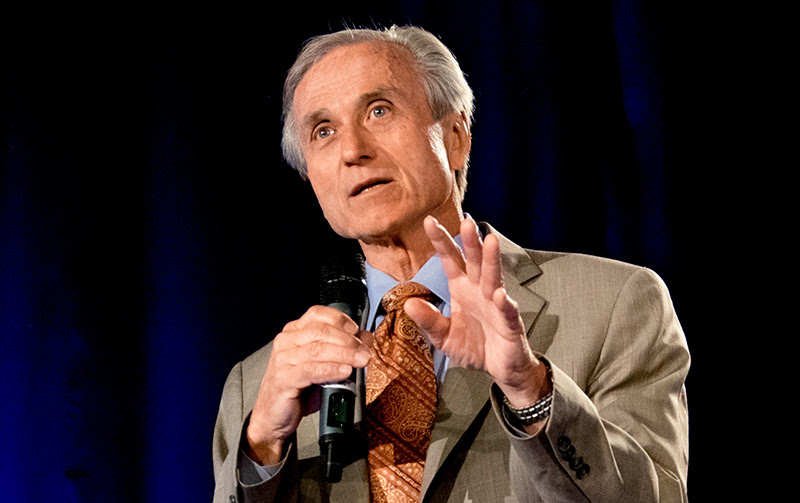


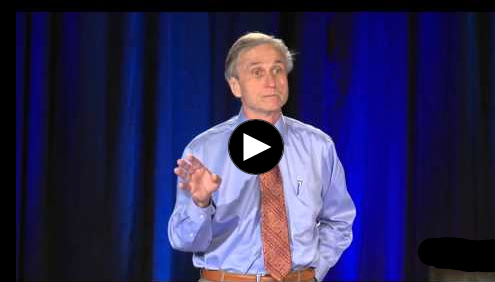
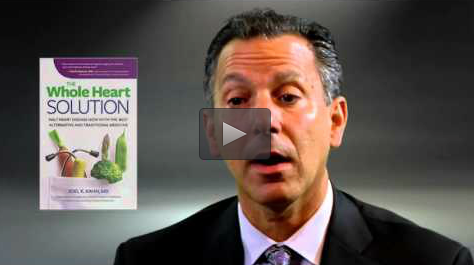


 Now Dr. Esselstyn has another new article published in a major journal -- The Journal of Experimental & Clinical Cardiology.
Now Dr. Esselstyn has another new article published in a major journal -- The Journal of Experimental & Clinical Cardiology.  In a nutshell, Dr. Esselstyn and his co-authors followed 198 consecutive patient volunteers who undertook a plant-based diet with Dr. Esselstyn's guidance. Out of the initial 198, 177 individuals were compliant with the diet (89%). Of this compliant group, only one individual suffered a recurrent event of heart disease. That is an event rate of .6% -- the lowest recurrence rate to date of any study of plant-based diets and heart disease. 21 individuals of the original 198 in the research group did not adhere to Dr. Esselstyn's diet program. They went back to the standard American diet. 13 of these nonadherent participants -- or 62% -- subsequently experienced adverse cardiac events. It is worth nothing that the individuals who did not eat the plant-based diet were still under typical cardiology care and received standard medical interventions like pills and procedures. Yet 62% of them still succumbed to more adverse heart events. 62% got worse with a standard diet and standard medical care, whereas only .6% of the people who followed Dr. Esselstyn's diet had any further heart problems. That means Dr. Esselstyn's diet appears to be ONE HUNDRED TIMES more effective than standard care from a typical cardiologist. It's not just 2 or 3 times better, it's 100 times better. It is, quite literally, the difference between dying of heart disease versus curing the disease. This study should be broadcast from every rooftop. Every cardiologist should give a copy of this study to their patients, in case that patient wishes to avoid heart disease altogether and just cure it. This study essentially confirms that people can choose whether or not to have heart attacks, strokes, angina or other cardiovascular issues. Apparently heart disease is a completely optional disease. It's a choice -- and the best news is you can choose to prevent it or reverse it, avoiding it entirely. Read Dr. Esselstyn's new study now (PDF FILE):
In a nutshell, Dr. Esselstyn and his co-authors followed 198 consecutive patient volunteers who undertook a plant-based diet with Dr. Esselstyn's guidance. Out of the initial 198, 177 individuals were compliant with the diet (89%). Of this compliant group, only one individual suffered a recurrent event of heart disease. That is an event rate of .6% -- the lowest recurrence rate to date of any study of plant-based diets and heart disease. 21 individuals of the original 198 in the research group did not adhere to Dr. Esselstyn's diet program. They went back to the standard American diet. 13 of these nonadherent participants -- or 62% -- subsequently experienced adverse cardiac events. It is worth nothing that the individuals who did not eat the plant-based diet were still under typical cardiology care and received standard medical interventions like pills and procedures. Yet 62% of them still succumbed to more adverse heart events. 62% got worse with a standard diet and standard medical care, whereas only .6% of the people who followed Dr. Esselstyn's diet had any further heart problems. That means Dr. Esselstyn's diet appears to be ONE HUNDRED TIMES more effective than standard care from a typical cardiologist. It's not just 2 or 3 times better, it's 100 times better. It is, quite literally, the difference between dying of heart disease versus curing the disease. This study should be broadcast from every rooftop. Every cardiologist should give a copy of this study to their patients, in case that patient wishes to avoid heart disease altogether and just cure it. This study essentially confirms that people can choose whether or not to have heart attacks, strokes, angina or other cardiovascular issues. Apparently heart disease is a completely optional disease. It's a choice -- and the best news is you can choose to prevent it or reverse it, avoiding it entirely. Read Dr. Esselstyn's new study now (PDF FILE): 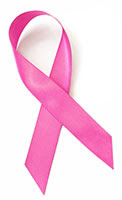






 It all started when I was 21 years old. I had just gotten home from working the closing shift. I was having a snack and watching TV, when suddenly an electrical wave washed over me – from my neck to my feet, for lack of a better word, I went numb. I remember thinking, “this can’t be good.” But I did what any logical person would do; I ignored it until it went away.
It all started when I was 21 years old. I had just gotten home from working the closing shift. I was having a snack and watching TV, when suddenly an electrical wave washed over me – from my neck to my feet, for lack of a better word, I went numb. I remember thinking, “this can’t be good.” But I did what any logical person would do; I ignored it until it went away.
 Nearing six years later, still in remission and drug-free, I have no doubt that it’s McDougall’s starch-based diet that stopped the MS in its tracks. While I was initially determined to get rid of the MS, I have learned that I can’t - it’s just how my body works now. But, I can keep it from “waking up” by controlling what I eat - and that is better than any drug!
Nearing six years later, still in remission and drug-free, I have no doubt that it’s McDougall’s starch-based diet that stopped the MS in its tracks. While I was initially determined to get rid of the MS, I have learned that I can’t - it’s just how my body works now. But, I can keep it from “waking up” by controlling what I eat - and that is better than any drug!





